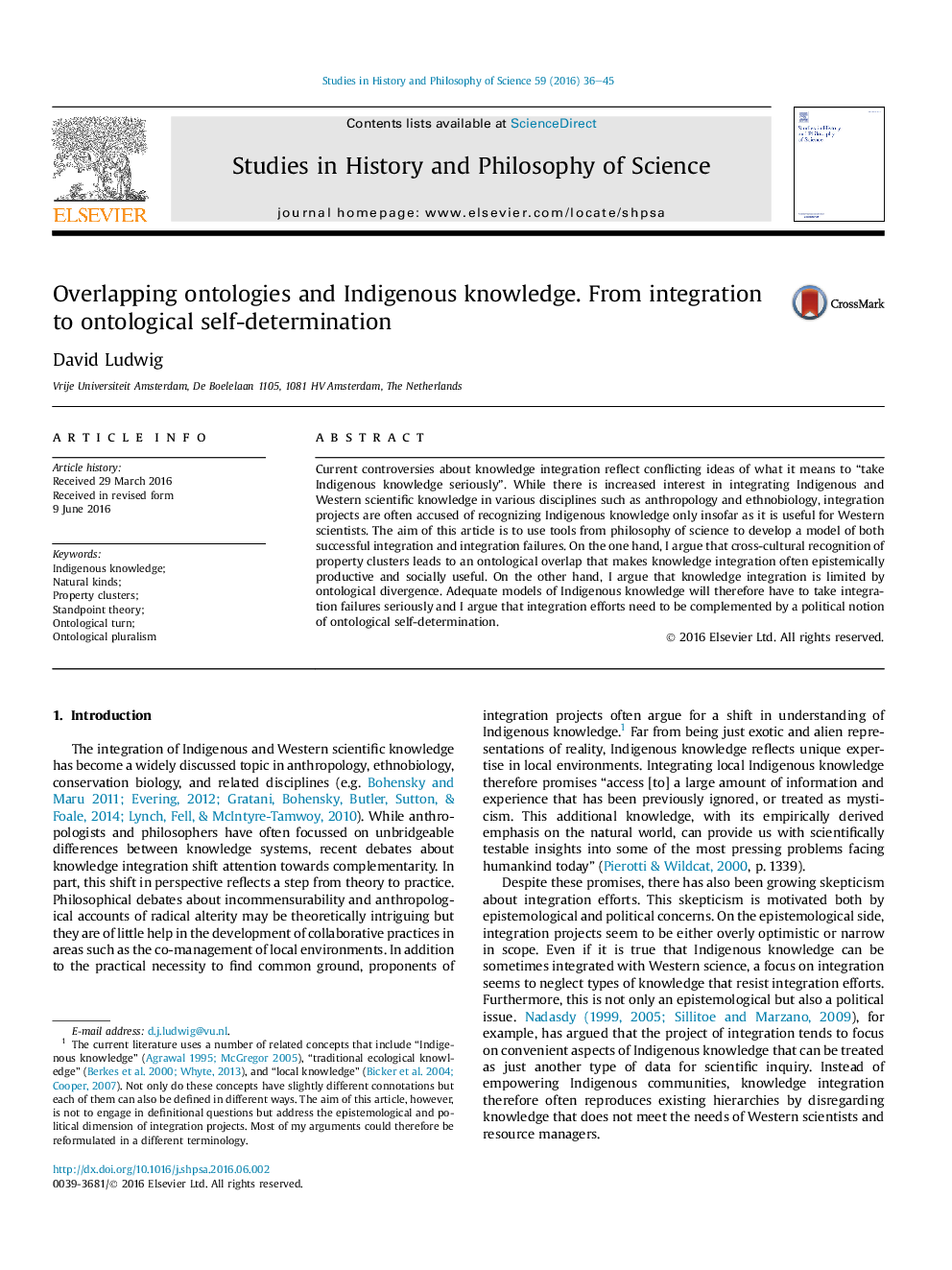| Article ID | Journal | Published Year | Pages | File Type |
|---|---|---|---|---|
| 1160317 | Studies in History and Philosophy of Science Part A | 2016 | 10 Pages |
•Proposes a property cluster model of knowledge integration.•Explains integration failures on the basis of goal- and domain-dependent ontologies.•Uses standpoint theory to develop a notion of ontological self-determination.
Current controversies about knowledge integration reflect conflicting ideas of what it means to “take Indigenous knowledge seriously”. While there is increased interest in integrating Indigenous and Western scientific knowledge in various disciplines such as anthropology and ethnobiology, integration projects are often accused of recognizing Indigenous knowledge only insofar as it is useful for Western scientists. The aim of this article is to use tools from philosophy of science to develop a model of both successful integration and integration failures. On the one hand, I argue that cross-cultural recognition of property clusters leads to an ontological overlap that makes knowledge integration often epistemically productive and socially useful. On the other hand, I argue that knowledge integration is limited by ontological divergence. Adequate models of Indigenous knowledge will therefore have to take integration failures seriously and I argue that integration efforts need to be complemented by a political notion of ontological self-determination.
